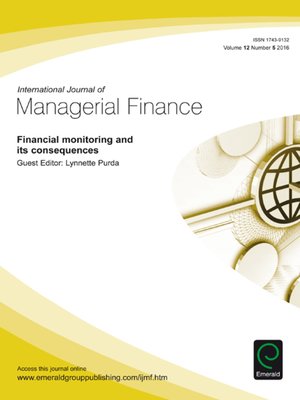International Journal of Managerial Finance, Volume 12, Issue 5
ebook ∣ Financial monitoring and its consequences · International Journal of Managerial Finance
By Lynnette Purda

Sign up to save your library
With an OverDrive account, you can save your favorite libraries for at-a-glance information about availability. Find out more about OverDrive accounts.
Find this title in Libby, the library reading app by OverDrive.



Search for a digital library with this title
Title found at these libraries:
| Library Name | Distance |
|---|---|
| Loading... |
It is human nature to act in our own self-interest. Unfortunately, the resulting actions may run in conflict with others, even those whose interests we are specifically tasked to protect or promote. In a financial setting, these conflicts have long been acknowledged with early work focused on natural monopolies, the principal-agent problem between managers and shareholders, and the monitoring of firm creditworthiness by banks. The six papers included in this e-book embrace a broad definition of what constitutes a financial monitor. They illustrate that a common theme of financial monitoring is the fine balance between monitoring's costs and benefits. Ideally, the benefit of monitoring is that it reduces the tendency of parties to act in their own best interests at the expense of others or the firm's resources. The costs of financial monitoring may take many forms. They may involve direct expenses associated with the creation of screening processes or the collection of additional data. Reduced growth may also be a cost if covenants or high levels of dividend commitment curtail investment. Finally, enhanced monitoring may have a societal cost if it diverts resources away from socially responsible activities.







